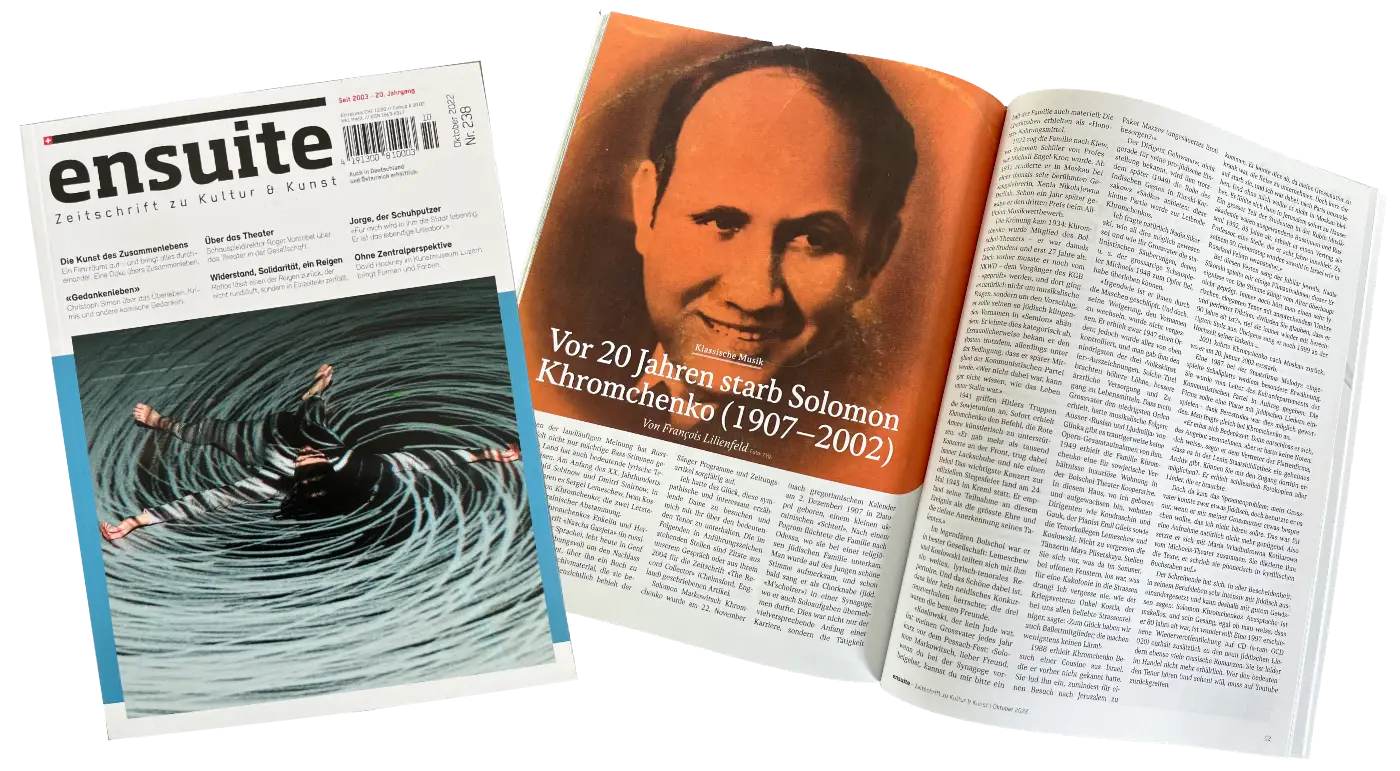Life Line
For more than half a century Solomon Khromchenko actively recorded for the gramophone and magnetic tape. For the first time his voice was recorded by “Muztrest” with the Aria of Ole from the opera “Ole from Norland” by M. M. Ippolitov-Ivanov and the “Mattinata” by R. Leoncavallo in 1933. With Solomon Khromchenko as Bayan, the entire Glinka’s “Ruslan and Lyudmila” was recorded: during his years at the Bolshoi Theatre he participated in two of its productions – in 1938, with conductor S. A. Samosud and, in 1948, with conductor A. S. Melik-Pashayev. Between the 1930s and 1950s, he recorded a number of opera arias, romances and songs (including duets with baritones Piotr Kirichek, Konstantin Laptev and Piotr Selivanov and trios with soprano Natalia Schpiller and bass Maxime Mikhailov). Some of them were reissued in a two-record album, The Art of Solomon Khromchenko, released in 1977. In the 1980s he recorded a series of Neapolitan songs (1981), old Russian romances (1984) and Jewish songs (1987) on Melodiya – the latter disc was his gift to himself for his 80th birthday. Many of the singer’s recordings have been reissued on his solo CDs: “Russian and Jewish Songs” (1997), “Arias from Opera, Neapolitan and Spanish Songs” and “Young Solomon Khromchenko: Romances by Russian Composers” (2009). All the existing recordings are collected on this website – we hope you will enjoy listening to them.
In 2000 Solomon Markovich Khromchenko returned to Russia, where, on January 20th, 2002, he passed away peacefully in his sleep, in his apartment on Gorky Street, now Tverskaya. Until his very last day he considered his main title to be that of “soloist of the Bolshoi Theatre”.
